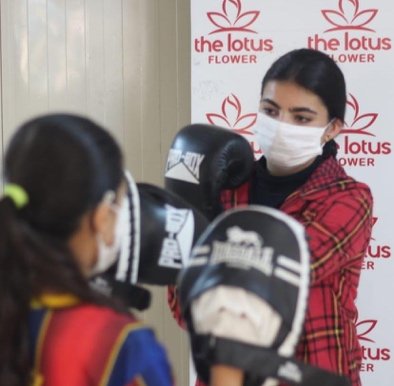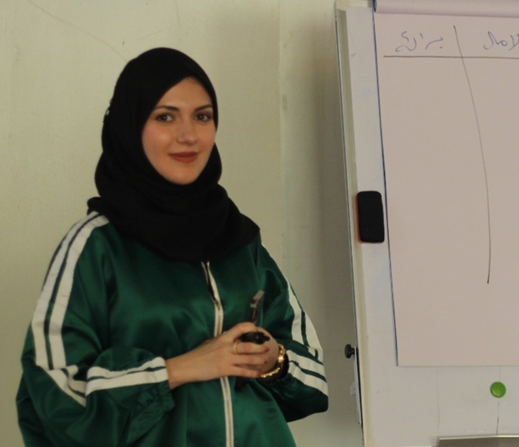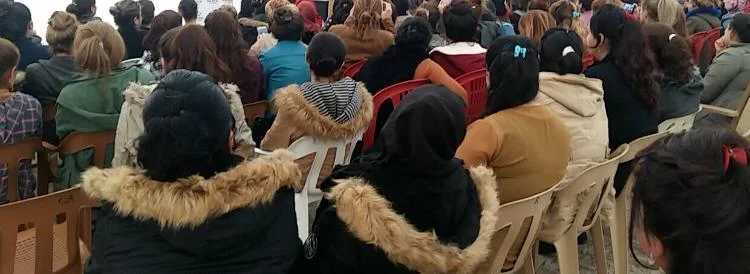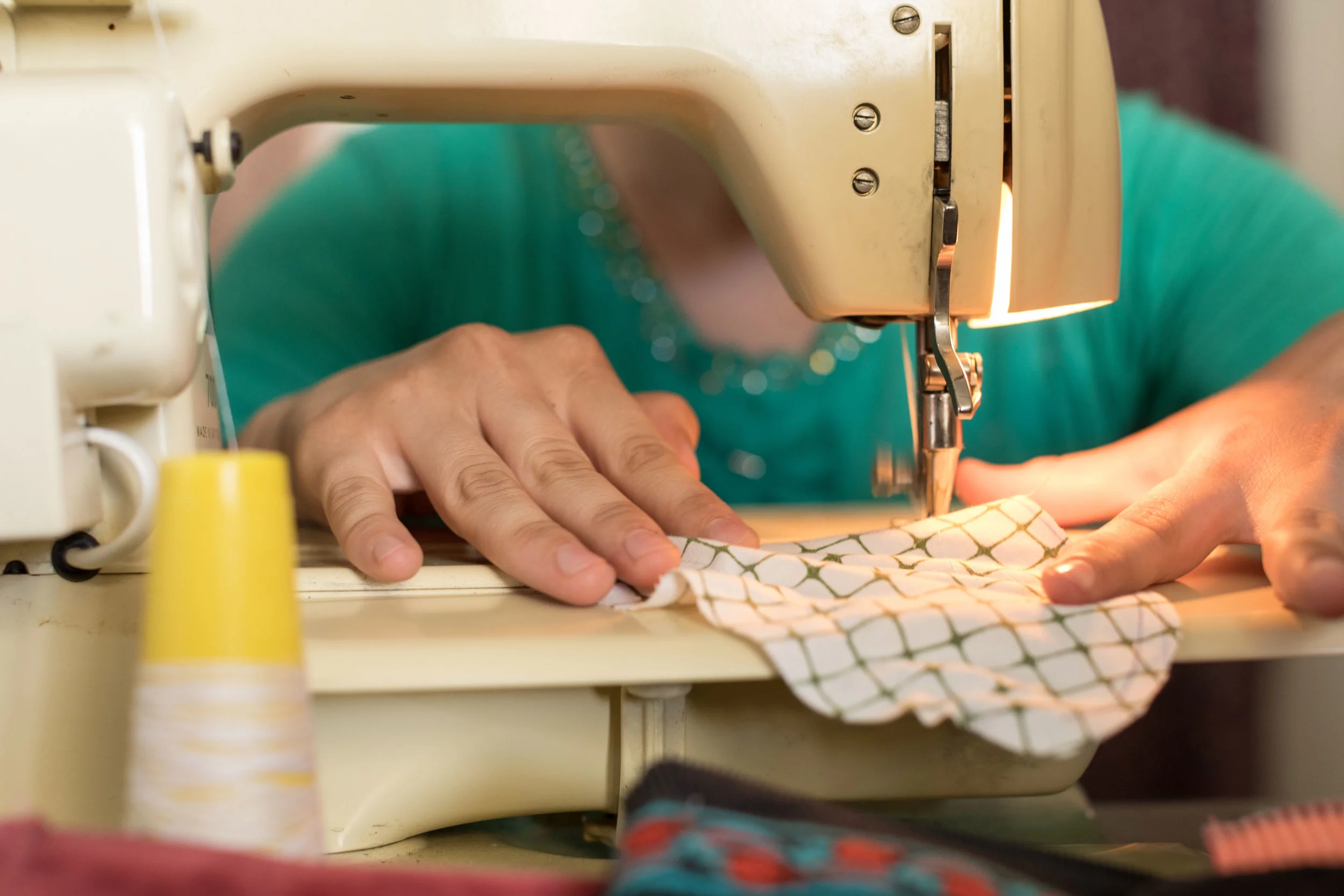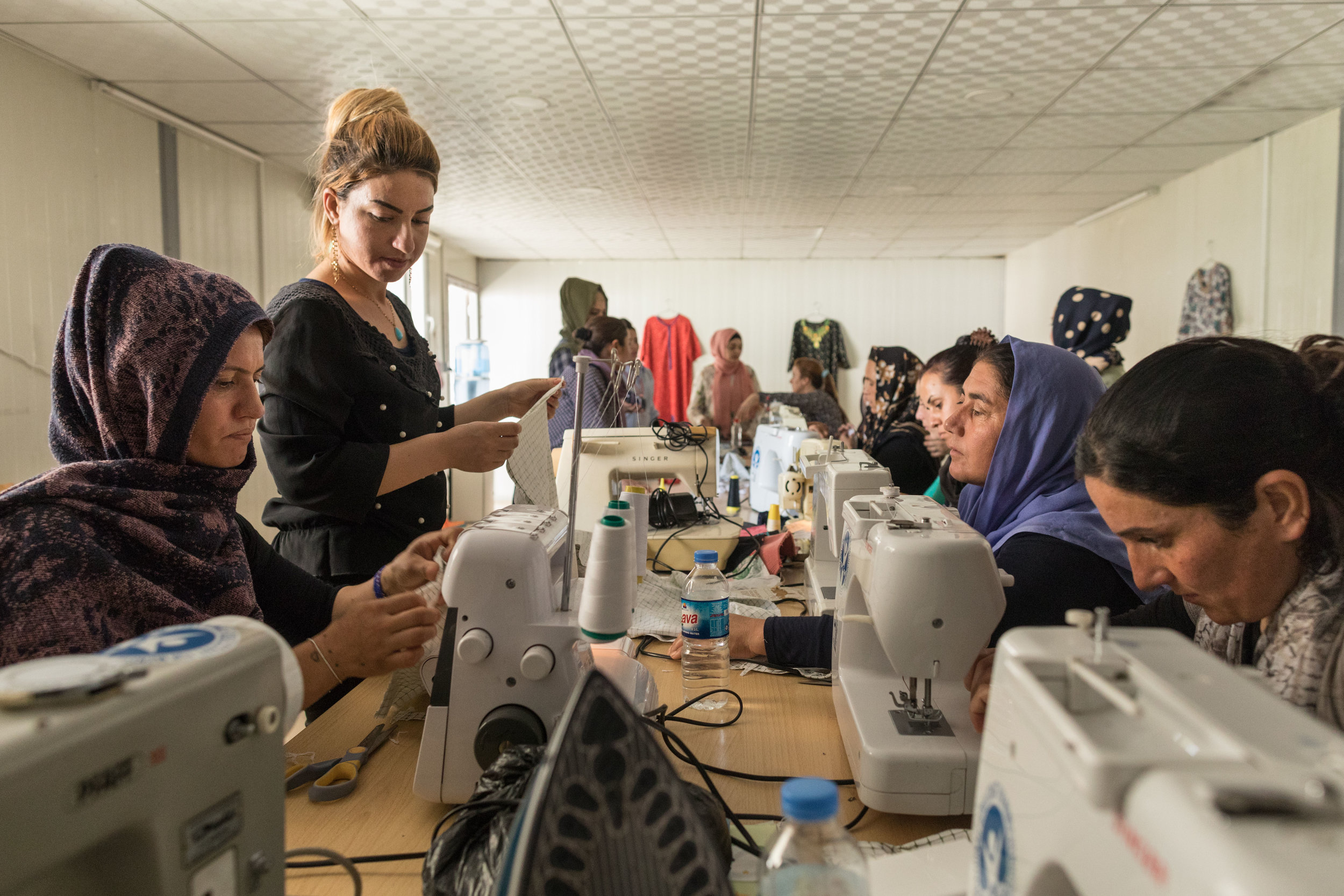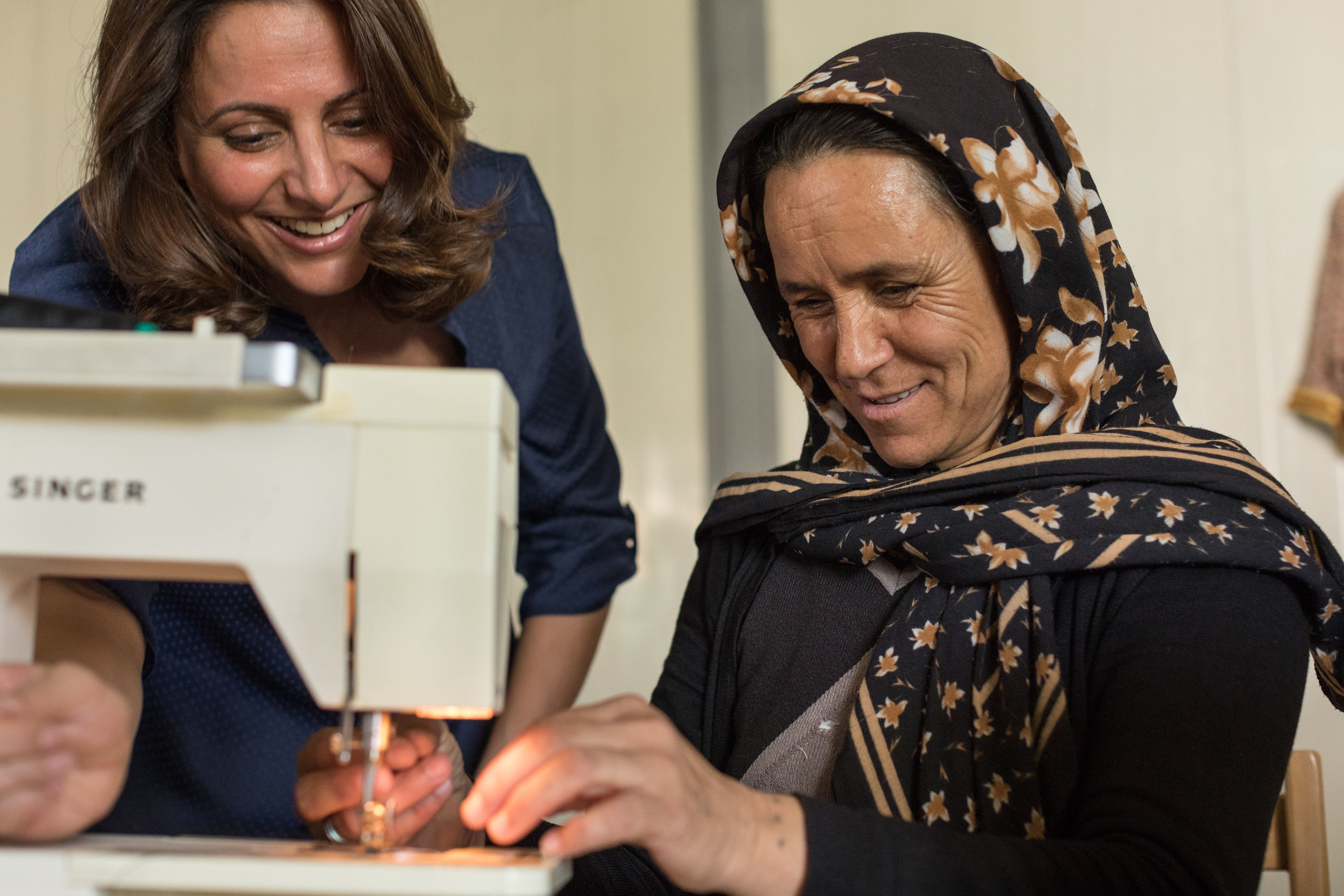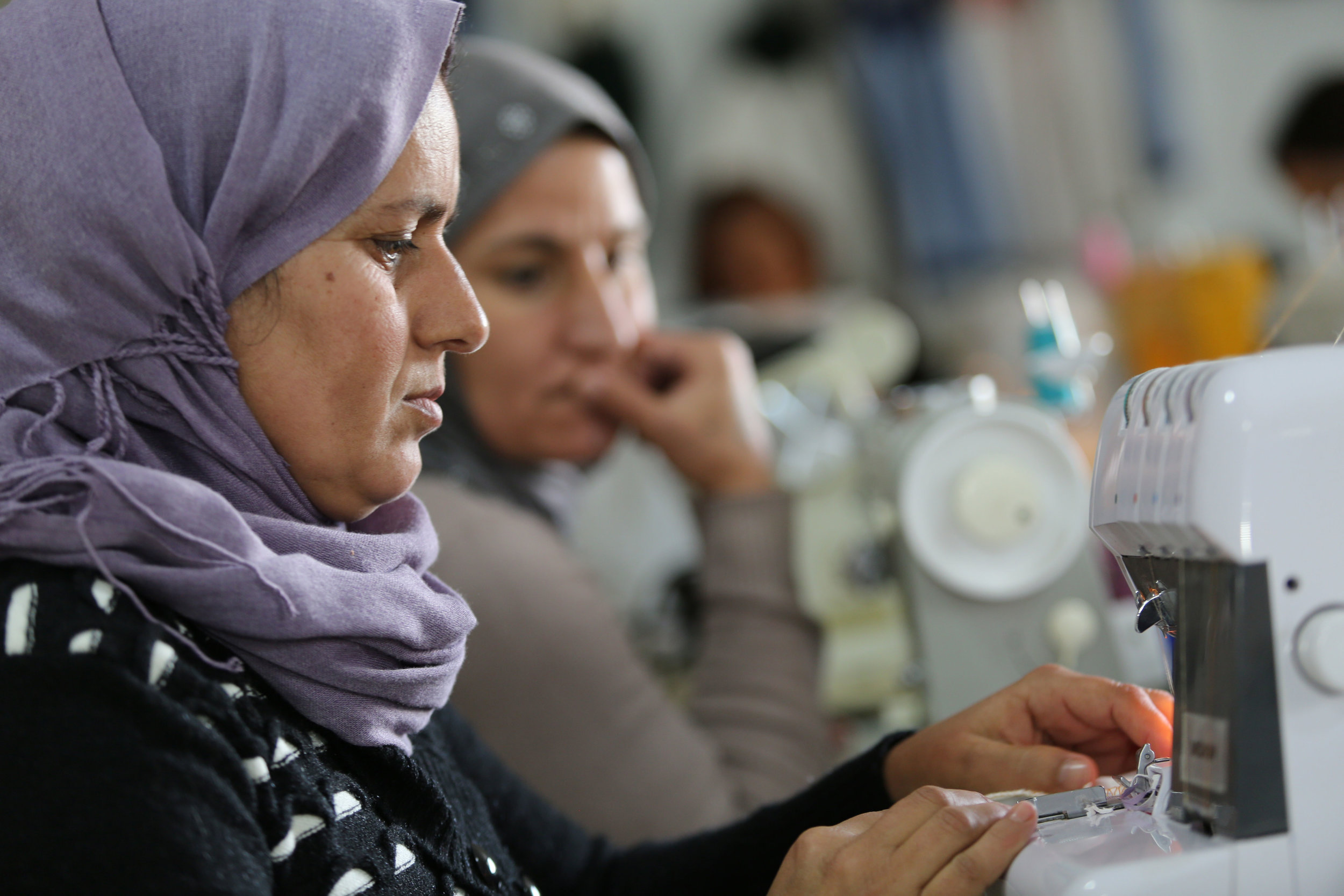Boxing Sisters
Our Boxing Sisters project was originally set up with the help of Cathy Brown, a retired professional British boxer and certified Cognitive Behaviour Therapist. Inspired by Cathy, the boxing and self-defence taught by our trainers teaches girls about strategy and focus, relieves stress and increases their confidence as well as physical strength. By learning self-defence techniques, women and girls feel more secure knowing that they can protect themselves.
Our Boxing Sisters project was originally set up with the help of Cathy Brown, a retired professional British boxer and certified Cognitive Behaviour Therapist. Inspired by Cathy, the boxing and self-defence taught by our trainers teaches girls about strategy and focus, relieves stress and increases their confidence as well as physical strength. By learning self-defence techniques, women and girls feel more secure knowing that they can protect themselves.
The classes also help with anger management, as the physical activity allows pent-up feelings and trauma to move through the body and be released from the muscles. Finally, the project builds friendships and a community, because the Sisters always have a coach and a sparring partner.
Since the first iteration of Boxing Sisters, the programme has grown hugely, and is now one of our most popular and in-demand projects.
Cathy Brown, co-founder of Boxology Academy
CASE STUDY
As one of our younger beneficiaries, Rushna has found our regular girls’ boxing classes to be hugely beneficial – for both her mental and physical wellbeing. “I really enjoy boxing because it makes me feel strong,” she says. “I hope one day to be a boxing trainer myself, so I can teach other women and girls to defend themselves. It’s not all about physical strength, but it also gives you a strong sense of self-confidence and self-determination to face the difficulties in our lives. I want to share that with other young girls.”
Rushna also finds great comfort in visiting our women’s centre, adding: “It gives me opportunities to learn new skills and meet new friends, so we can spend time together instead of being stuck in our accommodation.”
Peace Sisters
As one of our newest projects, Peace Sisters provides women and girls with training so that they can lead peace processes and take a more active role in rebuilding their fractured communities. Although there are other projects on the ground that foster peacebuilding and social cohesion, we believe Peace Sisters is one of the first to train women to become mediators, peace defenders and active community leaders.
As one of our newest projects, Peace Sisters provides women and girls with training so that they can lead peace processes and take a more active role in rebuilding their fractured communities. First launched in partnership with the German Consulate, the project sees participants learn new skills in critical thinking, teamwork, communications and public speaking, with the aim of empowering them to recognise their human rights and take on prominent leadership roles.
Although there are other projects on the ground that foster peacebuilding and social cohesion, we believe Peace Sisters is one of the first to train women to become mediators, peace defenders and active community leaders.
Crucially, after the training, the women and girls implement community activities of their own choosing – which involve men and boys and encourage inclusion, collaboration and open dialogue across multiple faiths, cultures and generations. These activities have to date included awareness sessions around Women, Peace and Security, journalism workshops and self-defence classes.
Peace Sisters also falls directly in line with UN Resolution 1325, which calls for “an increase in the participation of women at decision-making levels in conflict resolution and peace processes.”
CASE STUDY
Laylan participated in Peace Sisters because she wanted to know more about mediation in conflict resolution. She says: “I enjoyed this experience, especially meeting new girls and learning about their experiences and opinions. My favourite thing about the training was that the mediation was taught by women and girls.”
She adds: “The training taught me to be in control of my feelings, be more confident, and be more goal-oriented in life. I hope this project grows and reaches more women and girls in the community as it is highly useful in different aspects of life.”
Baking Sisters
What started as a small project, utilising the talents of a few skilled bakers amongst the women is going to develop into a longer term cafe project, to build a more extensive community space that will help foster relationships, confidence and community spirit.
With a shortage of public spaces for displaced women and girls to gather, as well as a lack of employment opportunities, it can be incredibly difficult for them to rebuild their lives. Our Baking Sisters initiative increases women’s capacity-building, skills development, financial independence as well as their self-confidence.
The project is managed and operated by the women themselves – with the initial equipment, structures, capital goods and raw ingredients provided by the Lotus Flower. As well as retaining any profits as an income and furthering their cooking skills, the project enables the women to gain vital business knowledge which they can use to develop their future careers.
Vitally, this extensive community space helps foster relationships, confidence and community spirit. The project is also supported by leading British chef and restaurateur Asma Khan, who helped us launch the project at Essyan camp – as you can see in this video.
Photo Credit: Asma Khan, @asmakhanlondon
CASE STUDY
Suad is a Syrian refugee and a survivor of domestic violence. As a single mother she struggled to provide for her four children, which affected her mental health. After receiving psychological support from the Lotus Flower, she was also selected to take part in Baking Sisters, and says: “Now I help run the Lotus Flower Bakery, so I can provide for my children. Spending time with other women and girls has been very beneficial. I am much stronger now, and feel happier as I can support my kids.”
Storytelling Sisters
First launched as a pilot in Spring 2019, the Lotus Flower’s Storytelling Sisters project provides an educational platform for local women to learn a combination of photography and creative writing skills, enabling them to share their experiences through photos and stories. The project aims to provide marketable skills and facilitate improved mental health outcomes through shared experiences and community support.
First launched as a pilot in Spring 2019, the Lotus Flower’s Storytelling Sisters project provides an educational platform for local women to learn a combination of photography and creative writing skills, enabling them to share their experiences through photos and stories. The project aims to provide marketable skills and facilitate improved mental health outcomes through shared experiences and community support. The first project culminated in an exhibition in Duhok City, which validated the work of the participants and was very well-received by the local community and donors who attended.
As part of the programme, women and girls learn how to use DLSR cameras and photo editing software, plus how to create compelling video content and use social media platforms to share their work. The scheme serves as a creative outlet which helps women and girls heal from trauma, after many experienced unthinkable suffering at the hands of ISIS.
CASE STUDY
Ghazal, who moved into Essyan camp following the ISIS atrocities, took part in Storytelling Sisters after she had begun taking photographs to tell the stories of those living within the camp. “When I saw I was capable of doing this work, I created a page to show my pictures,” she says.
After completing the project, Ghazal started working with the Lotus Flower as a photography trainer for Storytelling Sisters, encouraging women to record their experiences visually as a healing and inspiring artform. “It is a joy to share my hobby with other women and girls, and also to be an official employee of the Lotus Flower.”
Supporting Survivors
Since 2016 we have been working with a team of pro-bono international lawyers at Hogan Lovells to pursue civil litigation cases for women ISIS survivors. The move is aimed at finally bringing Islamic State fighters to justice, while delivering compensation to female Yazidi survivors in northern Iraq.
Since 2016 we have been working with a team of pro-bono international lawyers at Hogan Lovells to pursue civil litigation cases for women ISIS survivors. The move is aimed at finally bringing Islamic State fighters to justice, while delivering compensation to female Yazidi survivors in northern Iraq. Rather than the duty falling on the tax-payer, we believe one solution is for states and governments to confiscate seized or sanctioned assets from foreign ISIS fighters, and redistribute these among the victims. The action is focusing on ‘homegrown’ ISIS fighters – identified by the women victims – from western countries including Australia.
Not only is reparation and redress the most appropriate outcome for identified foreign ISIS fighters, but we believe it will open new doors for the survivors – many of whom feel they have been abandoned by the western world. Holding their aggressors to account in this way will bring them a vital sense of closure at long last.
The civil action is to focus on ‘home-grown’ ISIS perpetrators from western countries who have committed atrocities such as rape, enslavement, torture and human trafficking. We are hoping this will pave way for new policy and legislation for all victims of sexual abuse in conflict.
Sewing Sisters
We want to teach women to sew and weave in order to learn the skills to earn a living one-day to support themselves and their families.The Lotus Flower will be working with Yazidi women in Kurdistan region of Iraq. The atrocities Yazidi women have faced hit the headlines in August 2014, and are still doing so today.
Sewing Sisters was our very first project, and launched in November 2016 at our centre in Rwanga Community Camp. The project followed a needs assessment which we conducted with 200 women from the community, the majority of whom requested help an income-generating scheme which specifically involved sewing. Our research showed that female Yezidi survivors want an opportunity to financially provide for their families while also creating a supportive community environment to recover from the atrocities they've experienced.
During the three-month training programme, the students were taught on sewing machines and we provided all materials needed while they completed the course. Women who were unable to read or write were also able to participate in our adult literacy course prior to beginning Sewing Sisters.
At the end of the course, all women received a professional certificate and the opportunity to work through local contracts in the community in order to generate an income. Some women also received a sewing machine for their homes enabling them to continue production there.
By offering professional training and connections to the local market, this economic livelihood programme helps enable women's future long-term stability, empowerment, and financial independence. As an example, many of the graduates made use of their skills by creating fabric face masks for the community, to help guard against the spread of Covid-19.
As well as clear financial benefits, the project helps women emotionally and socially – giving them an opportunity to leave their cabins and tents, and providing a space for them to work, meet and heal together.
CASE STUDY
When Almas first arrived at Rwanga camp after the ISIS attacks, she found living in a tent very difficult, especially as there was no water or electricity and she didn’t know anyone. “But slowly, I got to know the Lotus Flower staff, and they signed me up for the Sewing Sisters course,” she says. “It really interested me, and not only because I made new friends. The course was three months, and after finishing it, I received a sewing machine. By working with the machine and practicing my new skills, I was able to earn money and care for my children. I am so grateful to the Lotus Flower for what they have done to help me and my family.”
Hairdressing Sisters
The Lotus Flower will soon be launching our new livelihood programme, Hairdressing Sisters, to further economic and employment opportunities for displaced women in the Kurdistan Region of Iraq.
Our livelihood programme Hairdressing Sisters was designed to further economic and employment opportunities for displaced women. After conducting a needs and skills assessment, female respondents requested training in hairdressing as there were no women-only salons in the camps and they are unable to travel to nearby cities due to lack of transportation and financial resources.
In partnership with Gareth Smith, a London-based freelance hair stylist with 20 years in the industry, we trained women to become hairdressers in each of our centres, with the aim that they would then be able to earn an income based on their skills. The space, equipment, and training were all provided, enabling them to learn everything they needed to know about hairdressing. After graduating from the course, they became able to offer their services to their community and seek financial independence and security.
Farming Sisters
The majority of camp residents are Yezidi and have a farming background that spans generations. As the women’s centre includes a plot of unused land, we wanted to facilitate an opportunity for women to use skills that have been taught to them by their ancestors while also providing an income to support their families. The women have recently started to garden and plant seasonal vegetables.
After opening the doors to our third women’s centre in Essyan Camp, the Lotus Flower launched another livelihoods programme, Farming Sisters. The majority of camp residents are Yezidi and have a farming background that spans generations. As the women’s centre includes a plot of unused land, we wanted to facilitate an opportunity for women to use skills that have been taught to them by their ancestors while also providing an income to support their families. The women have successfully used the land to garden and plant seasonal vegetables.
Throughout the year, they manage the project and sell fresh produce to their neighbours, the surrounding community, and even the Lotus Café. As with all of our livelihood programmes, the women retain 100% of their profits.
Our Farming Sisters have also taken over eight greenhouses which we renovated at Essyan camp in 2023, meaning they can grow fresh vegetables to feed their families and earn independent incomes. Additionally, at Domiz 2 camp, we recently established a community garden featuring raised beds in which women can now grow vegetables and herbs.




